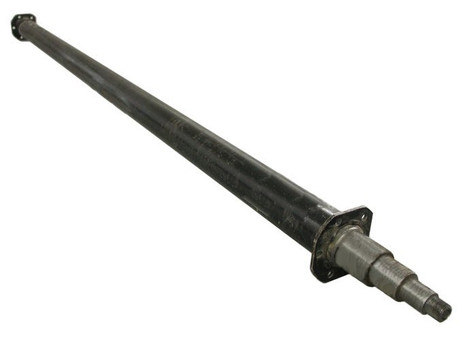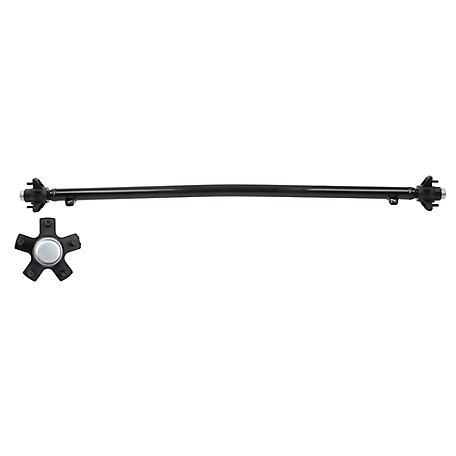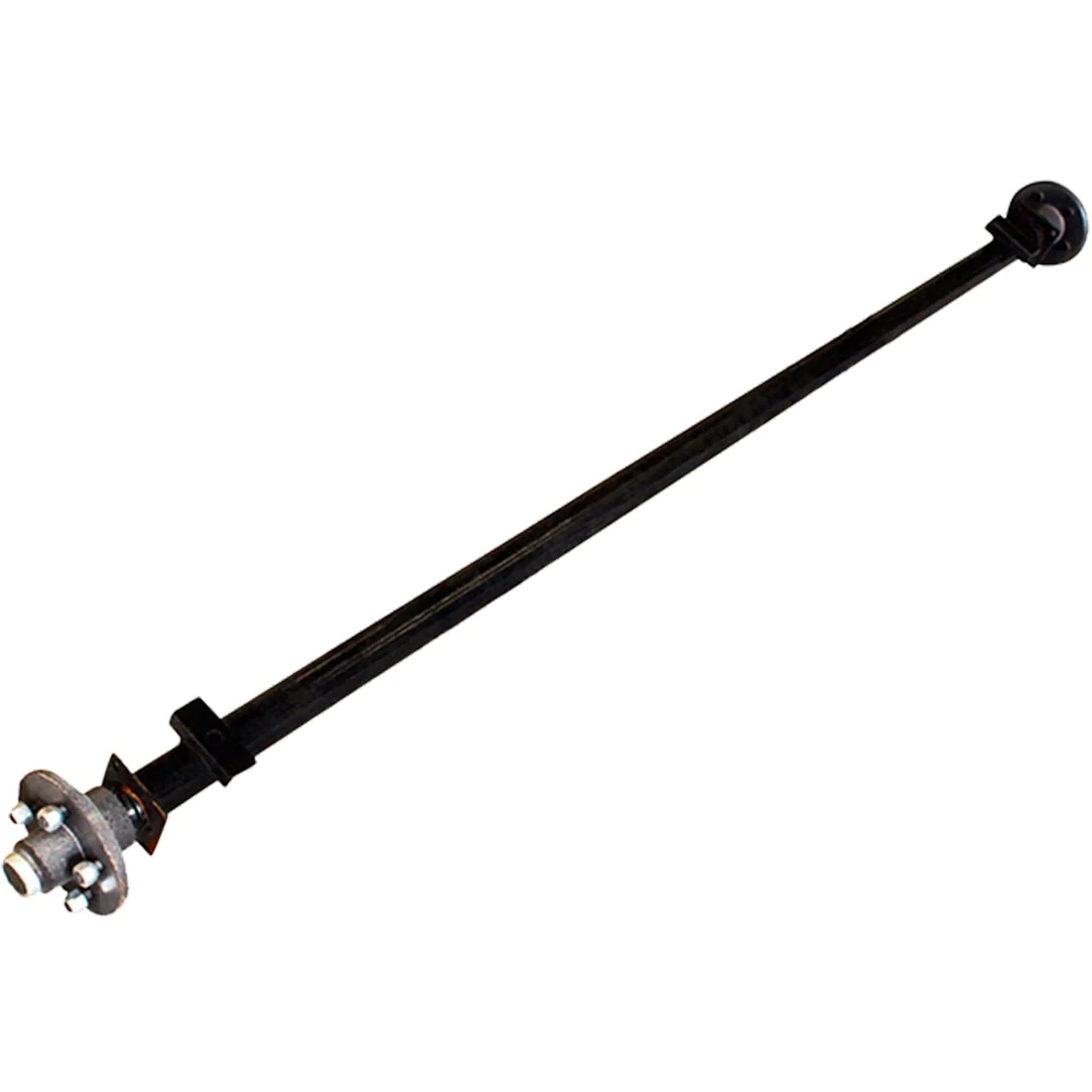Product Description
Products Description
Strong one-piece or welded axle head, exceeding the industry standard for hardness and tensile strength.Stable and
reliable brake system with non-asbestos brake linings.
1. Products Name: semi trailer bpw trailer axle for sale
2. Axle Track: 1840mm
3.Axle Beam: Square 150mm/127mm Round 127mm
4. Product type:American,Germany and Europe type
5.Max.capacity you can choose:12T,13T,14T,15T,16T
6.Stud:10*M20*1.5
7.Material: Steel
8.Products Capacity Available: 13T/14T/16T/18T/20T
Technical Parameter
|
Model |
Max. Capacity (T) |
Bearing |
Total Length (mm) |
Wheel Track (mm) |
Air chamber spacing (mm) |
Axle Tube (mm) |
Brake (mm) |
Rim Size |
Weight |
|
DRGG12 |
12 |
33213/33118 |
2170 |
1840 |
316 |
150*150*14 |
420*200 |
10-M22*335*280 |
360 |
|
DRGG14 |
14 |
33215/32219 |
2172 |
1840 |
421 |
150*150*16 |
420*200 |
10-M22*335*280 |
400 |
|
DRGG16 |
16 |
32314/32222 |
2288 |
1840 |
274 |
150*150*16 |
420*200 |
10-M22*335*280 |
460 |
Noted:
1. The Trailer Axle track can be customized according to customer requirements
2. Axles can install ABS brake.
3. Axles can install Air brake chamber
Details Images
Other Details:
1). Professional heat treatment.
2). Precise welding technology.
3). Strictly tested and defect-free.
4). World top after-sales service.
13T 14T 16T 18T 20T Semi Trailer Axle that sells well around the world. Here we have only listed some of the models we produce, and please note that we can produce American Drum Wheel Brake Axle of various specifications according to your drawings, sample or specific parameters you give us.
Application scenario
Company Profile
ZheJiang Darong Machinery Co., Ltd :
We are located in ZheJiang , China. Founded in 2001, we focus on the R & D and manufacturing of trailer axles. At present, thegroup’s main products include disc axles, drum axles, low plate axles, three-line 6 axle axles, concave axles, eccentric axles,small tonnage trailer axles, semi-finished axles and various types of suspensions, leaf springs, outriggers and traction pins. The cooperative customers are located in more than 50 countries and regions such as Asia, Europe, Latin America, the Middle East, Australia and Africa, helping many customers create higher benefits and values.
Why Choose Us
We have the most advanced production equipment and technology to ensure the quality of trailer axles. There is a very mature axle manufacturing process to produce axles according to the different needs of customers. Each axle is manufactured through more than 10 processes, and finally, the quality inspection procedure of the axle ensures that each axle is a qualified product.
Customer Photos
many customers come to our factory for inspection. Welcome to visit our factory if you have time. You can visit our workshop. Our equipment is a complete set of axle processing equipment. At present, the most advanced automatic assembly process equipment on the market, as well as tools to automatically test the torque of axle bolts, ensure the stability of product quality.
Product packaging
Our Advantages
We have obtained the ISO9001:2015 quality system certification, and are a strong supplier of Alibaba. We have obtained the SGS certification and the ZheJiang high-tech enterprise certification. The company has strong technical research and development strength, and can customize products according to customer needs.
| After-sales Service: | 24h |
|---|---|
| Condition: | New |
| Axle Number: | 3 |
| Application: | Trailer |
| Certification: | ASTM, CE, ISO |
| Material: | 20mn2 |
| Samples: |
US$ 500/Piece
1 Piece(Min.Order) | |
|---|
| Customization: |
Available
| Customized Request |
|---|

Can you provide examples of common trailer types that use different axles?
Certainly, various types of trailers use different axles to meet their specific needs:
- Utility Trailers: Smaller utility trailers often use single axles for lighter loads, while larger ones may have tandem axles for increased capacity.
- Boat Trailers: Boat trailers may feature multiple axles to support the weight of different-sized boats.
- Travel Trailers: Travel trailers come in various sizes, each with axles suitable for their weight and towing requirements.
- Horse Trailers: Depending on the number of horses they carry, horse trailers use single or multiple axles with features for animal safety.
- Cargo Trailers: Cargo trailers range from smaller single-axle versions to larger tandem or multi-axle trailers for transporting goods.
- Flatbed Trailers: These trailers for heavy loads feature tandem or multi-axle configurations to support oversized cargo.
- Dump Trailers: Trailers used for frequent dumping of materials come with robust axles designed for heavy use.
- Refrigerated Trailers: Reefer trailers use axles suitable for both the weight of goods and the requirements of refrigeration systems.
- Specialty Trailers: Car haulers, concession trailers, and equipment trailers come with axles tailored to their specific purposes and loads.
In summary, the choice of axles depends on the trailer type and its intended use, load capacity, and towing requirements.

What are the key considerations when selecting the right trailer axle for a specific application?
Choosing the appropriate trailer axle for a specific application involves several critical considerations:
- Weight Capacity: Determine the maximum weight the axle will need to support. This includes the trailer’s payload and the weight of the trailer itself. Ensure the selected axle has a weight capacity that exceeds the application’s requirements to provide a safety margin.
- Axle Type: Select the axle type based on the application. Common types include straight axles, drop axles, and torsion axles. The choice depends on factors like ground clearance, load height, and suspension design.
- Axle Configuration: Decide on the number of axles needed. Single axles are suitable for lighter loads, while tandem and tri-axle configurations offer higher weight capacities. Multi-axle setups provide better weight distribution.
- Suspension Type: Choose the appropriate suspension system, such as leaf spring, air ride, or torsion suspension. The suspension affects ride quality, load stability, and maintenance requirements.
- Brake System: Consider the braking requirements. Larger and heavier trailers often require electric or hydraulic brakes. Ensure the axle accommodates the necessary brake system, including the brake size and type.
- Axle Material: Select the axle material, typically steel or aluminum. Steel axles are durable and cost-effective, while aluminum axles are lighter and corrosion-resistant. The choice depends on the application’s demands and budget.
- Hub and Spindle Type: Choose hubs and spindles compatible with the axle. The hub style affects the type of wheel and tire you can use, while spindle size impacts weight capacity and bearing compatibility.
- Wheel Bolt Pattern: Ensure the axle’s hub and wheel bolt patterns match to avoid compatibility issues with the wheels and tires you plan to use.
- Ground Clearance: Consider the required ground clearance for the application. Lower ground clearance may be suitable for highway travel, while off-road or specialty trailers may need increased clearance.
- Legal Compliance: Ensure that the selected axle and trailer configuration comply with local and national regulations regarding weight limits, axle spacing, and safety requirements.
- Manufacturer and Warranty: Choose a reputable axle manufacturer with a track record for quality and durability. Check the warranty and support offered by the manufacturer.
- Budget: Evaluate the budget constraints for the axle and select an option that balances cost-effectiveness with meeting the application’s needs.
By carefully considering these factors, you can select the right trailer axle that ensures safe and efficient performance for your specific application.

What is a trailer axle, and how does it differ from vehicle axles?
A trailer axle is a fundamental component of a trailer’s suspension and load-bearing system. It differs from vehicle axles in several ways:
1. Load-Bearing Purpose:
– Trailer axles are designed primarily for load-bearing, meaning they support the weight of the trailer and its cargo. Vehicle axles, on the other hand, bear the weight of the vehicle itself and its occupants.
2. Articulation:
– Vehicle axles are usually fixed in place and do not articulate independently. Trailer axles, especially in multi-axle configurations, often feature independent articulation to improve stability and weight distribution. This allows each wheel to move independently over uneven terrain.
3. Braking Systems:
– Vehicle axles are directly connected to the vehicle’s braking system. In contrast, trailer axles can have their own braking systems, such as electric or hydraulic brakes, which are controlled separately from the towing vehicle. This setup improves braking control and safety.
4. Suspension Type:
– Trailer axles often use leaf spring or torsion suspension systems, which are optimized for load-bearing and cargo stability. Vehicle axles utilize various suspension types, including independent suspension, to prioritize ride comfort and handling.
5. Steering:
– Vehicle axles are integral to steering, allowing the vehicle to change direction. Trailer axles do not contribute to steering; instead, the towing vehicle controls the trailer’s direction through the hitch or coupler.
6. Wheel Attachment:
– Vehicle axles are typically fixed to the vehicle chassis, while trailer axles may use a variety of attachment methods, including leaf spring mounts or torsion arm attachments, to accommodate articulation and weight distribution.
7. Load Distribution:
– Trailer axles are designed to distribute the trailer’s weight evenly across the wheels to prevent overloading any single point. Vehicle axles do not have this load distribution requirement, as the vehicle’s weight is more evenly distributed.
– In summary, trailer axles serve a specific purpose in supporting and stabilizing trailers, while vehicle axles are tailored for the vehicle’s propulsion, steering, and suspension needs. Understanding these differences is crucial for safe and effective towing.


editor by CX 2023-11-07